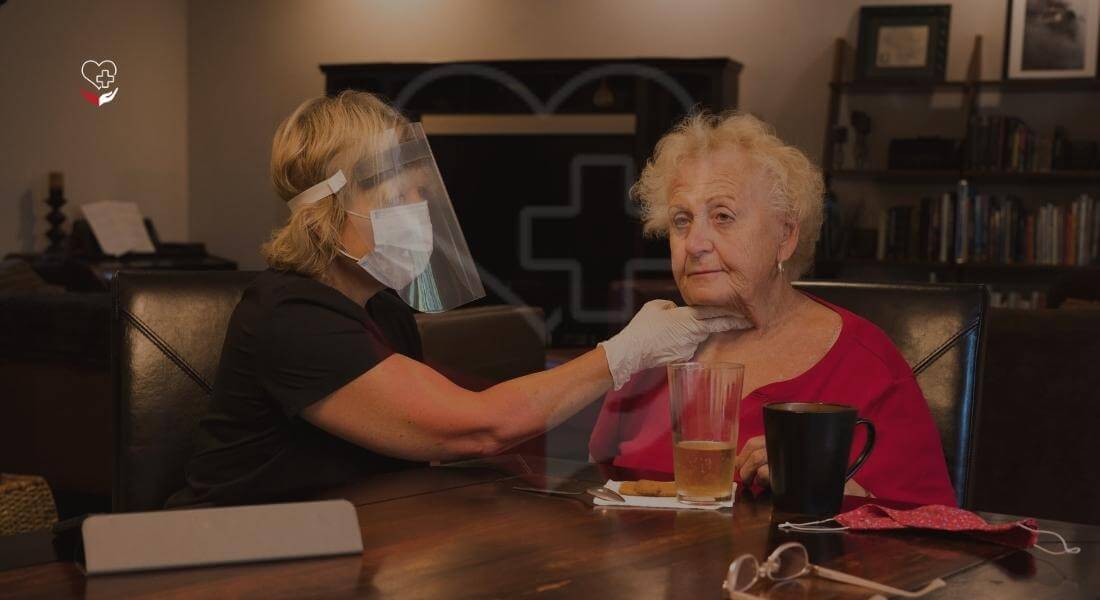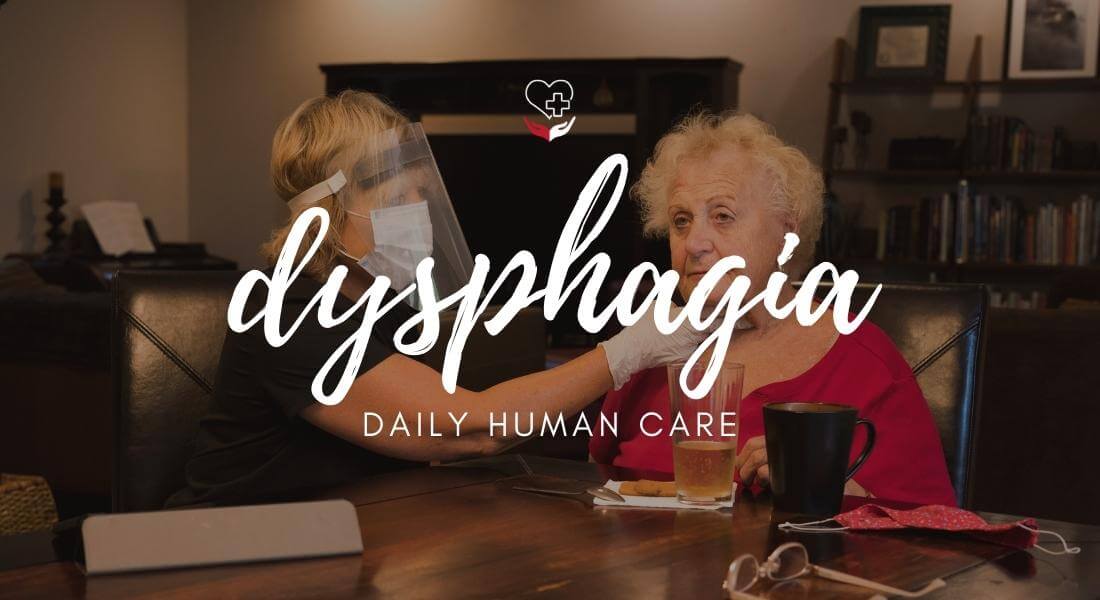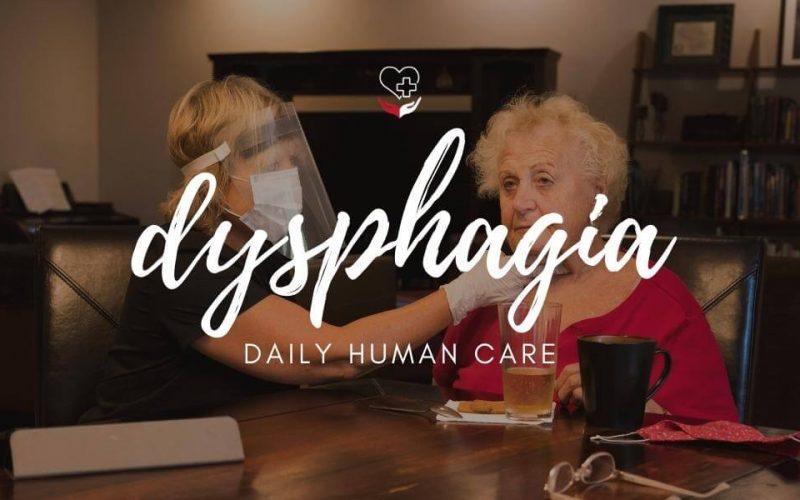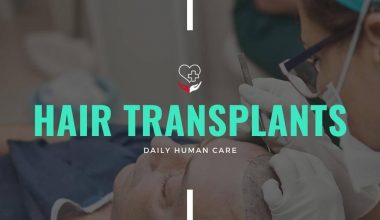Table of Contents
What is Dysphagia?
Having trouble swallowing can be a sign of a variety of ailments. Physical blockages in the throat are one type of disease that can affect people with disorders of the neurological system and brain. Antibiotics, changes to your eating habits, and even surgery are all options for treating swallowing problems, depending on the origin of the problem.

What is difficulty swallowing?
Another name for swallowing problems is dysphagia. An abnormality in your throat, or the muscular tube that carries food and drink from your mouth to your stomach, is the most common cause of choking or regurgitation. Dysphagia can occur in anybody, although it is more common in the elderly, infants, and those with brain or nervous system disorders.
There are numerous reasons why the throat or esophagus may not function as it should. The severity of these problems ranges from slight to severe. In most cases, if you have difficulty swallowing once or twice, you do not have a medical issue. If you have difficulty swallowing on a regular basis, you may have a more severe problem that requires medical attention.
How Do I Know If I Have a Swallowing Problem?
People rarely choke on their food under regular circumstances. Occasionally, food will get lodged in the esophagus for a few seconds (particularly with solid foods), but it will pass on its own or be quickly flushed down with liquids. If you notice any of these symptoms, it’s time to get checked out for a possible swallowing issue.
- Frequent food choking
- For longer than a few seconds, a pause in the flow of food
- Suffering from difficulty swallowing
- Pneumonia that keeps returning (an indication that food may be going into the lungs rather than the esophagus)
If food is stuck in the esophagus for more than 15 minutes and isn’t passing on its own or with drinks, you should seek medical assistance right once.
Some people may be unaware that they have swallowing difficulties because they compensate automatically by eating more leisurely meals or eating more slowly. But untreated swallowing problems increase the danger of choking or food being stuck in the esophagus, which can lead to complications.
What causes dysphagia?
It is critical to seek medical assistance as soon as possible if food remains stuck in the esophagus for more than 15 minutes and is not being expelled naturally or with drinks.
Some people may be unaware that they have swallowing difficulties because they compensate automatically by eating easier or slower meals. But untreated swallowing issues increase the danger of choking or food getting stuck in the esophagus that are:
- Eating is difficult because the muscles and nerves that carry food through the esophagus and throat are malfunctioning. If you have the following conditions, you may be at risk:
- A brain or spinal cord injury or a stroke occurred.
- Post-polio syndrome, multiple sclerosis, muscular dystrophy, or Parkinson’s disease are all examples of nervous system disorders.
- Polymyositis and dermatomyositis are two examples of immune system disorders that result in muscle swelling and weakening.
- Spasm of the esophagus. Squeezing of the esophageal muscles is the result. This can sometimes block the stomach from receiving food.
- Esophageal tissues harden and narrow due to this disorder. Food and stomach acid could rise back up into your throat and mouth if you have weak lower esophageal muscles as a result of Scleroderma.
- The obstruction in your throat or esophagus is preventing you from swallowing properly. If you have the following:
- Reflux disease of the stomach and esophagus (GERD). Ulcers in the esophagus can arise as a result of stomach acid leaking into the esophagus frequently. Your esophagus may get smaller as a result of these scars.
- This is esophageal inflammation. GERD, an infection, or a medication lodged in the esophagus are just a few of the possible causes. Allergies to foods or airborne allergens can also be responsible.
- Esophageal or throat mucous membranes have a number of small pockets called esophageal or throat mucous membranes.
- Tumors of the esophageal lining. These esophageal growths could be malignant or not.
- Lymph nodes, cancerous tumors, and vertebrae bone spurs can all pressure the esophagus.
Dysphagia might get worse if you have a dry mouth. Your mouth and esophagus may become clogged because you don’t produce enough saliva. You may experience dry mouth as a side effect of certain medications or due to an underlying medical condition.
What are the symptoms?
For some people, the symptoms of dysphagia can be mild or severe or worsen over time. A person who suffers from dysphagia may have difficulty swallowing on the first try.
- You may experience nausea, gagging, or even choking when you try to swallow.
- After swallowing, have food or liquids come up through your throat, mouth, or nose.
- The sensation that food or liquids are lodged somewhere in your throat or lungs.
- When you swallow, you feel a sharp, stabbing pain.
- Have chest pain or discomfort, or suffer from heartburn.
- Insufficient food and fluid intake is the primary cause of weight loss.
ICD-10-CM Diagnosis Code R13.10
For reimbursement purposes, ICD 10 code for dysphagia R13.10 can be used to indicate a diagnosis.
On October 1, 2021, the R13.10 edition of ICD-10-CM became mandatory in 2022.
ICD-10-CM R13.10 is only available in the United States and Canada; other international variations of ICD-10 R13.10 may have different markings.
Annotation back-references for R13.10 may be found in the following codes: R13.10
R00-R99
Unclassified symptoms, indicators, and aberrant results in the clinic or laboratory
R10-R19
gastrointestinal and abdominal signs and symptoms
R13.1
swallowing difficulty/dysphagia
Also Read : What is Speech Therapy and What happens In Adult Speech Therapy
How is dysphagia diagnosed?
A doctor will examine you if you are experiencing trouble swallowing. Whether it’s solids or liquids, they will want to know if you have problems swallowing. The doctor will also ask what foods or liquids are getting stuck, how long you’ve experienced heartburn, and difficulties swallowing.
Reflexes, muscle strength, and speech may also be tested. Afterward, your doctor may send you to one of these specialists:
- An otolaryngologist specializes in diagnosing and treating ears, nose, and throat disorders.
- A gastroenterologist is a doctor who specializes in digestive system disorders.
- A neurologist is a doctor who specializes in the diagnosis and treatment of disorders affecting the neurological system.
- A specialist in swallowing disorders in the field of speech-language pathology.
One or more of the following tests may be necessary to determine the cause of your dysphagia:
X-rays
These are images of your neck or chest, as the name suggests.
Barium swallow
Take a sip of barium X-ray of the esophagus and throat. You will be required to consume a barium solution before the X-ray. An X-ray displays your esophagus better when it is coated with barium.
Fluoroscopy
You will be videotaped as you ingest barium as part of this test.
Laryngoscopy
Using a fiber-optic scope or a mirror, this examination examines the back of your neck for signs of cancer.
Upper gastrointestinal endoscopy, often known as esophagogastroscopy
Scopes are used in these exams to look at the upper esophageal and stomach regions, as well as the lower intestines, through your mouth and neck. A biopsy may necessitate the removal of a little bit of tissue. A biopsy is a medical procedure used to detect signs of inflammation or cancerous cells.
Manometry
A tube is inserted into your esophagus during this procedure. As you swallow, the tube is connected to a computer, which records the pressure in your esophagus.
The frequency and duration of acid reflux into the esophagus are measured via pH monitoring.
How do you fix dysphagia?
What is causing your dysphagia will determine your treatment. Does dysphagia go away? Dysphagia can be treated in a variety of ways, including:
Swallowing muscle strengthening exercises
Exercises that train your muscles to work together in order to assist you in swallowing may be necessary if you suffer from a brain, nerve, or muscle condition.
Additionally, it may be necessary to acquire new techniques for positioning your body and putting food into your mouth in order to swallow more effectively.
A shift in the kinds of food you consume. Your doctor may advise you to consume particular meals and liquids to make swallowing simpler.
Dilation
An esophageal dilation device is inserted into your esophagus to enlarge any constricted spots. In some cases, a second or even third session may be required.
Endoscopy
An object lodged in your esophagus can be removed with extended, narrow scope in some situations.
Surgery
If you have a tumor or diverticula obstructing your esophagus, you may require surgery to remove it. Patients with a condition affecting the lower esophageal muscle may also require surgery (achalasia).
Medicines
Prescription medications may help prevent stomach acid from entering your esophagus if you have dysphagia caused by GERD, heartburn, or esophagitis. Antibiotics are commonly used to treat esophageal infections.
Tubal feeding
People with severe dysphagia, who are unable to swallow enough food and drinks, may occasionally require a feeding tube.
Causes of dysphagia
Do you know what the 2 types of dysphagia are? Dysphagia can be classified into two categories based on the organs involved:
Oropharyngeal dysphagia in the region of the mouth or throat –
Esophageal dysphagia is a disorder of the esophagus (the tube that transports food from the mouth to the stomach).
Here, we describe some of the causes of dysphagia.
1. The neurological reasons
- When the nervous system (brain and spinal cord) is damaged, the nerves that initiate and regulate swallowing can be affected.
- Dizziness, drowsiness, and difficulty swallowing can all be caused by neurological conditions.
- the pain of a sprain
- Motor neuron disease (MND) is a degenerative condition of the brain and nervous system that affects the nervous system’s ability to communicate
- tumors in the brain
- The condition of myasthenia gravis, which causes muscle weakness, is extremely rare.
2. Developmental and congenital issues
It’s called “congenital” if it’s something that you’ve got from the start from birth. A variety of developmental factors influences the way you develop.
- Dysphagia can be caused by a variety of congenital or developmental disorders.
- Several types of limitations make it difficult for people to learn or understand things.
- CNS disorders that impact movement and coordination, such as those affecting cerebral palsy,
- a congenital condition that causes a gap or split between the upper lip or the roof of the mouth, is known as a cleft palate.
3. Obstruction
Obstructions in the throat or narrowing of the tube that carries food from mouth to stomach can make swallowing difficult.
Some of the causes of obstruction and narrowing include:
- It is possible that obstruction will not be an issue after treatment for certain types of mouth and throat cancer, such as laryngeal or esophageal cancer.
- This is a rare condition that primarily affects the elderly and causes difficulty swallowing liquids as well as solid food due to the presence of an overly large pouch in the upper part of their esophagus. Pharyngeal pouches
- When an eosinophil forms in the digestive tract lining, it damages the lining and makes it difficult to swallow, causing symptoms such as difficulty swallowing and regurgitation of food and liquid.
- Radiation therapy Gastro-esophageal reflux disease (GORD) – stomach acid can cause scar tissue to develop, narrowing the esophageal passageway. Infections such as tuberculosis or thrush – can result in inflammation of the esophagus).
4. Muscular conditions
Any condition that affects the muscles used to push food down the esophagus and into the stomach can cause dysphagia, although such conditions are rare.
Two muscular conditions associated with dysphagia are:
- scleroderma – where the immune system (the body’s natural defense system) attacks healthy tissue, leading to a stiffening of the throat and esophagus muscles
- achalasia – where muscles in the esophagus lose their ability to relax and open to allow food or liquid to enter the stomach
5. Other causes
With age, the muscles utilized for swallowing can become weaker. This could explain why dysphagia is so widespread among the elderly.
Chronic obstructive pulmonary disease (COPD) is a term used to describe a group of lung diseases that make breathing difficult. Your ability to swallow can be hampered by breathing problems.
Dysphagia can also occur as a result of a head or neck surgery complication.

Symptoms of dysphagia
Dysphagia is characterized by coughing when swallowing.
Some patients are unaware that they have dysphagia; as a result, it may go undetected and untreated, increasing the risk of aspiration pneumonia (a lung infection that can develop after accidentally inhaling saliva or food particles).
Dysphagia that goes undiagnosed can lead to dehydration and malnutrition.
Dysphagia can cause the following symptoms:
- When you eat, you choke.
- When swallowing, you can cough or gag.
- Drooling.
- Backing up of food or stomach acid into the throat
- Heartburn that comes back time after time.
- Hoarseness.
- Food caught in the throat, chest, or behind the breastbone sensation.
- The weight reduction that is unexplained
- resurrecting the food (regurgitation).
- Food in the mouth is difficult to control.
- The swallowing procedure is challenging to begin.
- Pneumonia recurrence
- Controlling saliva in the mouth is difficult.
The patient may feel like their food is stuck in their throat.
Risk factors for dysphagia
Dysphagia can be caused by a number of reasons, including:
1. Aging
Elderly people are more vulnerable. This is caused to the body’s general wear and tear over time. Dysphagia can also be caused by certain age-related disorders, such as Parkinson’s disease.
2. Neurological illnesses
Dysphagia is more frequent in those with neurological illnesses, such as specific nerve system abnormalities.
Diagnosis of dysphagia
The use of a barium swallow test to determine the cause of dysphagia can be beneficial.
A speech-language pathologist will try to pinpoint the source of the problem, i.e., which aspect of the swallowing process is creating problems.
The patient will be asked about their symptoms, how long they’ve been present, and whether or not they’re having trouble with liquids, solids, or both.
1. Swallow study
A speech therapist typically does a swallow study. They experiment with various food and beverage consistencies to see which ones cause problems. To determine the source of the problem, they may do a video swallow test.
2. Barium swallow Testing
The patient swallows a barium-containing beverage as part of a barium swallow test. In X-rays, barium appears and aids the doctor in better understanding what is going on in the esophagus, particularly the activity.
3. Endoscopy
A doctor uses a camera to view down into the esophagus. If they detect something that they suspect is cancer, they will do a biopsy.
4. Manometry
In this study, pressure changes in the esophageal muscles are measured. If nothing is discovered during an endoscopy, this may be employed.
Treatment for dysphagia
Distinct types of dysphagia necessitate distinct treatments.do you know What are the 2 types of dysphagia?
- Oropharyngeal dysphagia
- Esophageal dysphagia
Treatment for oropharyngeal dysphagia
Effective treatment for oropharyngeal dysphagia is complex since a neurological condition frequently causes it. Patients with Parkinson’s disease may benefit from treatment.
For swallowing therapy, a speech and language therapist will be used. The patient will learn new techniques for swallowing. Muscles and the way they respond can be improved through exercise.
Diet Easier-to-swallow liquids and solids can be mixed together. In addition to eating meals that are easy to swallow, the patient must consume a well-rounded diet.
Nasogastric or PEG tube feedings may be necessary if the patient is in danger of pneumonia, malnutrition, or dehydration (percutaneous endoscopic gastrostomy). PEG tubes are surgically placed directly into the stomach through a tiny abdominal incision.
Treatment for esophageal dysphagia
Surgical surgery is the most common course of action for dysphagia of the esophagus.
An esophageal balloon may be used to enlarge the passageway if a stricture or other obstruction is present (it is then removed).
An injection of botulinum toxin (Botox) is widely used to relax tight esophageal muscles (achalasia). Botulinum toxin can paralyze them when injected into the muscles, thus lowering constriction.
Oncologists will be consulted if the dysphagia is caused by cancer, and the tumor may need to be surgically removed.
Complications of dysphagia
There are situations when dysphagia can lead to other issues.
Coughing or choking is a typical condition that occurs when food enters the esophagus in the wrong direction and restricts the airway. Aspiration pneumonia and other chest infections can occur as a result of this, which necessitates immediate medical attention.
Accidental inhalation of something, such as a bit of piece of food, can lead to aspiration pneumonia.
The following symptoms characterize aspiration pneumonia:
- eating or drinking with a wet or gurgly voice
- While eating or drinking, coughing may occur.
- Trouble inhaling and exhaling, the breath may be shallow and fast.
Malnutrition and dehydration are possible outcomes of dysphagia, fear of choking that prevent you from eating and drinking.
You may not be able to enjoy meals or social events if you have dysphagia, which can have a negative impact on your quality of life.
Other complications
Aspiration pneumonia, which occurs when something is swallowed down the “wrong way” and enters the lungs, is the most common cause of pneumonia and upper respiratory infections.
This is especially true for those with dysphagia who aren’t aware of it or aren’t getting the treatment they need. Perhaps they aren’t getting enough of the essential nutrients they need to maintain excellent health.
A lack of fluid intake can lead to dehydration if an individual is unable to drink effectively (shortage of water in the body).
Dysphagia in young children.
Dietary deficiencies may occur in children with long-term dysphagia who aren’t getting the nutrition they require to grow physically and mentally.
Mealtimes can be stressful for children who have difficulties eating, and this can lead to behavioral issues.
What research is being done on dysphagia?
Surgeons and speech-language pathologists will be better equipped to diagnose and treat swallowing issues thanks to the new studies. People of various ages, including those who do not suffer from dysphagia, are being investigated to help researchers better understand how normal and disordered swallowing processes compare.
During the process of swallowing, tongue and throat movements can be studied in innovative and safe ways. Physicians and speech-language pathologists will be able to use these techniques to monitor a patient’s development during treatment in a safe manner.
In order to better understand why some forms of treatment work for some people and not others, scientists do research on treatment approaches. A few patients will be spared life-threatening lung infections as a result of this information, while others will be able to avoid the need for tube feedings.
What resources are available to me in the event that I need assistance?
An abrupt or gradual change in your capacity to swallow should prompt a visit to the doctor. An otolaryngologist (a specialist who specializes in illnesses of the ear, nose, throat, and head and neck) and a speech-language pathologist may be recommended by him or her to you if the symptoms persist. If a stroke or other neurologic illness is to blame for your swallowing difficulties, you may be referred to a neurologist.
Also, read Adult speech therapy.





